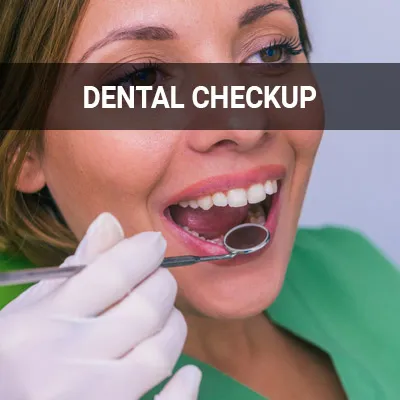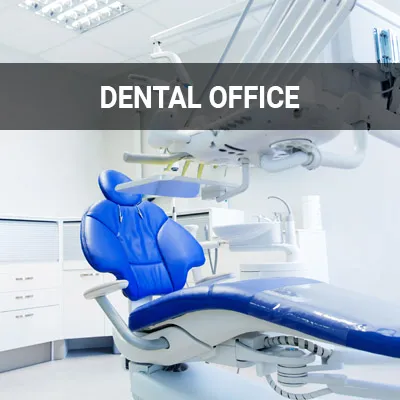Dental Office Blood Pressure Screening Miami, FL
Complete health dentists understand the oral-systemic link and implement it throughout their practice. Accordingly, they conduct a blood pressure screening during every dental visit to ensure the body is ready for treatment. A blood pressure test can reveal much about the patient’s health and well-being and may even determine whether they will undergo a dental procedure or not.
During the initial consultation appointment, a standard procedure typically involves a blood pressure check, a thorough examination of the mouth and body, a medical history review, and X-rays. By checking blood pressure every visit, we can help determine any lifestyle changes that may have a negative impact on one’s health. Patient inclusion is of high priority, and we will discuss what a patient’s screening means and how treatments will progress thereafter.
Information on dental blood pressure screenings is available at South Florida Dentistry in Miami and the surrounding area. We can discuss the importance of checking blood pressure and how it affects your overall health. Call us at (305) 203-4097 to schedule a consultation appointment to go over how the screening may affect your dental treatment.
Low Blood Pressure
Blood pressure refers to the pressure of the blood pumping through the arteries produced by contractions of the heart. According to the Mayo Clinic, low blood pressure, or hypotension, occurs when the brain does not receive enough blood. It is usually caused by an underlying disease, medications being taken, pregnancy, an infection, or lack of nutrition. Common symptoms of low blood pressure are dizziness, fatigue, nausea, fainting, dehydration, blurred vision, pale skin, and mild depression.
In most cases, screening results revealing low blood pressure do not affect many dental procedures. In the case of significantly low screenings, we may ask the patient to drink water and a sweet beverage or fruit to raise their blood pressure or reschedule for another visit. Low blood pressure is only alarming if a patient is experiencing dizziness or fatigue as local anesthesia and drilling can add too much stress and lead to variable results.
“Low blood pressure occurs when the brain does not receive enough blood.”
High Blood Pressure
High blood pressure (HBP), often called hypertension, occurs when the pressure of blood against artery walls is consistently high. HBP increases the heart’s workload, causing damage to the delicate tissues of the arteries. According to the CDC, "High blood pressure increases the risk for heart disease and stroke, two leading causes of death for Americans," affecting tens of millions of adults in the United States. Unmanaged HBP can lead to stroke, heart attack, heart failure, vision loss, kidney disease, and sexual dysfunction.
Dental treatments often, if not always, involve at least a minimal amount of stress incurred by local anesthesia and drilling. Blood pressure typically rises during dental procedures in an average person but can be life-threatening to patients with HBP as it increases their risk of a heart attack or stroke. At the same time, oral conditions, such as cavities, may be the cause of their HBP. The treatment can help reduce their symptoms and future readings.
“Unmanaged HBP can lead to stroke, heart attack, heart failure, vision loss, kidney disease, and sexual dysfunction.”
Meaning Behind Results
A blood pressure screening reveals two numbers that result from two forces: the first force (systolic pressure) and the second force (diastolic pressure). The American Heart Association explains, "The first force occurs as blood pumps out of the heart and into the arteries that are part of the circulatory system. The second force is created as the heart rests between heartbeats." A normal blood pressure reading is between 120/80 mm Hg, systolic over diastolic. High blood pressure refers to a systolic number higher than 120 and the diastolic number higher than 80. Low blood pressure readings are 90/60 mm Hg and lower.
A complete health dentist takes into account the patient’s medical history, prior treatments and surgeries, underlying health conditions, and current blood pressure readings to customize their dental treatment plan. This may mean referring the patient to a primary health care provider that can better help them manage their blood pressure or send them to a hospital for further scans and treatment. We take all necessary precautions to ensure every patient is safe and all dental treatments enhance their well-being without putting them at risk.
“A normal blood pressure reading is between 120/80 mm Hg, systolic over diastolic.”
Check out what others are saying about our dental services on Yelp: Dental Office Blood Pressure Screening in Miami, FL
Ineligible Patients
In most cases, we will reject treating patients with a blood pressure of 180/110 mm Hg or higher to eliminate any potential risks. Patients can also be ineligible for treatment if their primary health care provider sets limits on dental procedures or certain medications with side effects that affect blood pressure. If a patient’s blood pressure is not too low or too high, we will monitor their vitals throughout treatment and stop immediately if pressure drops or rises.
Local anesthesia contains epinephrine, which helps prolong the numbing effect. Epinephrine can constrict blood vessels, which in turn can elevate blood pressure. We may adjust the type of anesthesia and dosage we use in patients with high blood pressure.
“Epinephrine can constrict blood vessels, which in turn can elevate blood pressure.”
Questions Answered on This Page
Q. What is low blood pressure and how can it limit dental treatment?
Q. How does high blood pressure affect dental treatment?
Q. What do the numbers on a blood test reading mean?
People Also Ask
Q. Are oral conditions primarily habitual or genetic?
Q. How can a cracked or broken tooth affect other body systems?
Dentist Referrals
Patients with an above or below-average blood pressure readings are often referred to a cardiologist or other specialist that can better manage their case. Prior to complete health dentistry, many complications and accidents occurred due to the lack of knowledge behind dental treatment effects on blood pressure. Referrals do not indicate a lack of interest or comfort in treating a case but rather the interest we hold in ensuring all patients receive the proper care they need for overall health.
In most cases, the referred medical specialist has extended experience providing care to patients of their specialty. For example, a cardiologist is trained specifically in treating the heart and blood vessels, providing the necessary tools to treat patients with high or low blood pressure. A psychologist or mental health professional can help patients with stress reduction to naturally manage their blood pressure. In turn, specialists can refer a patient to a dentist for oral conditions affecting their general health or refer them back to their dental specialist after going through the proper treatment.
“Prior to complete health dentistry, many complications and accidents occurred due to the lack of knowledge behind dental treatment effects on blood pressure.”
Frequently Asked Questions About Blood Pressure Screenings
Q. What are the main causes of high blood pressure?
A. Since HBP and hypertension vary dramatically from patient to patient, the general causes of it remain unknown. However, factors such as inactivity, poor nutrition, obesity, older age, genetics, health conditions, and medications play a significant role. Blood pressure increases with age and is almost inevitable; it is important to notice it and learn how to manage it as soon as possible.
Q. What health problems are associated with blood pressure?
A. Several serious health conditions affect and are affected by blood pressure including, but not limited to: Atherosclerosis, a buildup of plaque in the blood vessels; heart disease and heart failure; kidney disease; stroke; and eye disease. High blood pressure can also increase risks of underlying health problems. Therefore, managing your blood pressure helps reduce symptoms of other health conditions while also avoiding the potential risks of HBP.
Q. What are the symptoms of high blood pressure?
A. Patients with consistently high blood pressure often experience strong headaches, chest pain, difficulty breathing, fatigue, irregular heartbeat, nosebleeds, blood in urine, and low exercise tolerance. Severe hypertension or prolonged lack of treatment can lead to heart attacks, heart failure, and stroke.
Q. How can I treat high blood pressure at home?
A. As HBP is linked to obesity and lack of exercise or nutrition, it is a good idea to incorporate safe exercises and proper nutrition in order to lose weight. Smoking also largely affects the heart and blood vessels, so quitting is highly recommended to reduce symptoms. Lastly, excessive alcohol and salt consumption are considered triggers for HBP; it is important to limit their consumption to alleviate symptoms.
Q. What are the side effects of high blood pressure medication?
A. There are many types of blood pressure medications and their side effects may vary. Common side effects include weakness, headaches, fatigue, constipation, ankle swelling, diarrhea, low potassium levels, low sexual ability, and weight gain. This is an important discussion to have with your doctor as many symptoms lead to other complications or may worsen a condition you have.
Dental Terminology
Learn More Today
If you are interested in better understanding complete health dentistry and how blood pressure affects many dental treatments, call us at 305-203-4097 to set up an appointment or ask us during your next visit.
Helpful Related Links
- American Dental Association (ADA). Glossary of Dental Clinical Terms. 2022
About our business, and website security
- South Florida Dentistry was established in 1997.
- We accept the following payment methods: American Express, Cash, Check, Discover, MasterCard, and Visa
- We serve patients from the following counties: Miami-Dade County
- We serve patients from the following cities: Miami, Doral, Hialeah, Fontainebleau, Hialeah Gardens, Sweetwater, Coral Gables, Kendall, South Miami, Miami Lakes, Miami Gardens, Medley, Westchester and Brickell
- Healthgrades. View Background Information and Reviews
- Norton Safe Web. View Details
- Trend Micro Site Safety Center. View Details
Back to top of Dental Office Blood Pressure Screening










